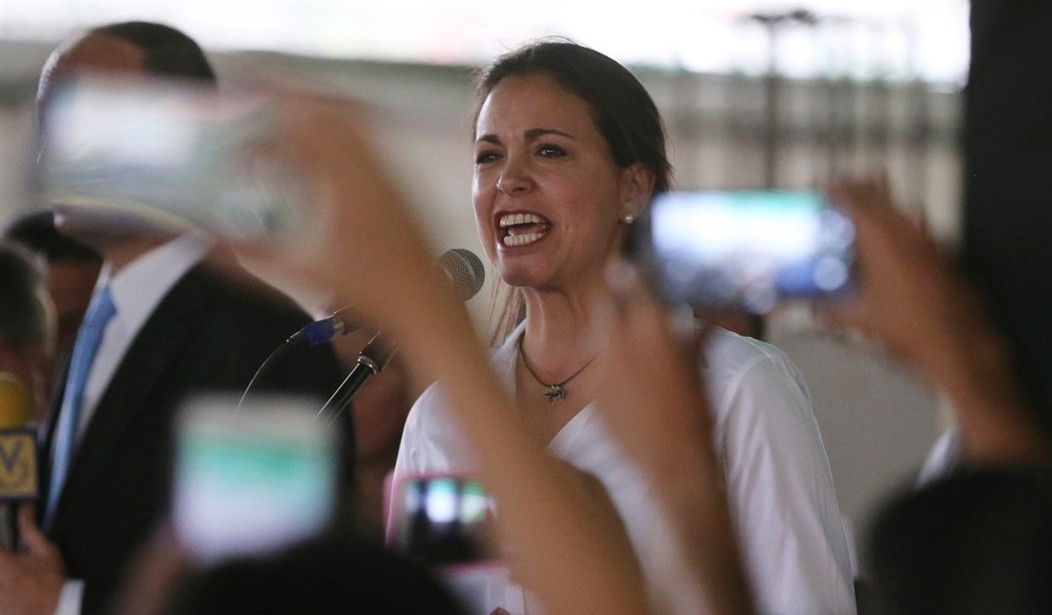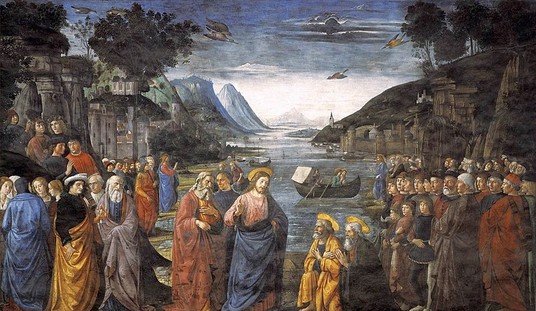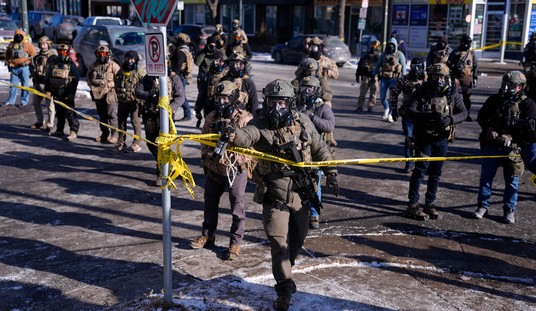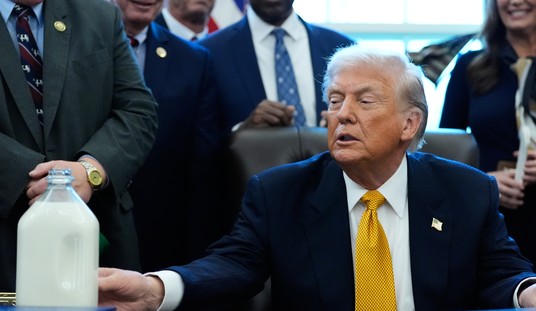In July I wrote about Maria Corina Machado, an opposition figure in Venezuela who was gearing up for a primary designed to determine who would face off with communist dictator Nicolas Maduro next year. Maduro is the hand-picked successor of Hugo Chavez who has been in power since 2013. He has used every trick imaginable, including rewriting the country’s constitution, to prevent a fair election since then.
Machado is a pretty compelling center-right candidate, one who supports free markets and free elections. The problem is that Maduro’s communist government has done everything it can to prevent her from running for office. Back in 2015 she was barred from running for office for a year but recently the ruling party clarified that she was “disqualified” from holding any public office for 15 years.
So what do you do when the party in power cheats by making it illegal for candidates to run against them? Machado’s plan was simply to attract enough support that the communists would feel obligated to let her compete. It appears the first part of her plan is working. She won the primary with overwhelming support.
With about 26 percent of the vote counted by Sunday night, María Corina Machado, a former member of the country’s legislature, had won 93 percent of the vote in a 10-candidate race among parties seeking to challenge the rule of President Nicolás Maduro, according to a commission overseeing the balloting. Her nearest competitor had drawn less than five percent of the vote.
Ms. Machado declared victory in a speech around midnight.
“This is not the end yet, but it is the beginning of the end,” she told supporters at an outdoor rally in Caracas, the capital. “Today we have unleashed a very powerful force. Today we have shown ourselves what we are capable of doing.”
Even the primary was beset with the kind of irregularities that are typical in Venezuela:
At a polling station in a parking lot in Catia, a poor neighborhood in Caracas, voters began lining up at 7 a.m. only to encounter a problem: a group of pro-government civilians was threatening to burn the cars in the parking lot if voting proceeded.
The story doesn’t say but it’s a safe bet these are ‘colectivos’, basically pro-communist thugs who ride around on motorcycles making threats against anyone who opposes the regime. This particular problem was solved when someone nearby offered to hold the vote in their house instead. Other voters waited in line for hours in the rain for a chance to oppose Maduro.
Hundreds of people gathered at voting centers in neighborhoods across Caracas even before polls opened. They stayed in line despite a rainstorm that left them soaking wet. They carried umbrellas, folding stools and coffee to ease the expected waits, and leaned against buildings or stood under marquees to try to avoid the rain.
Caracas resident Stephanie Aguilar, 34, cried while she waited to vote. She described the primary as the only “salvation” for her country, her daughter and son, and the millions of Venezuelans who decided they had to emigrate due to the nation’s economic and political turmoil.
“We want a better country, a free country, for my children … who have grown up in this government,” Aguilar, a housewife, said as she wiped tears from her face. “They ask, ‘Mom, can we go out to eat?’ No, there is no money. ‘Mom, can we do this thing?’ No, there is no money. It is unfortunate that a society grows up under those conditions.”
Even after the voting was complete, the communist government wasn’t done interfering. They blocked the internet connection of the server where results were being tallied delaying the reporting of the results.
All of this has a pretty direct impact on things happening here in the United States. As you probably know, many of the migrants arriving at the border this year have been people fleeing the Maduro regime in Venezuela. An estimated 7 million Venezuelans have fled the country over the past several years as the economy has collapsed. Putting a rational, free-market president in place could significantly improve conditions in the country and not only slow the tide of migrants heading north but even create a flow of Venezuelans returning home.
But none of that will happen if Maduro remains in power. Step one of getting rid of him is pressuring his government to undo the ban and allow Machado to compete in next year’s election.







Join the conversation as a VIP Member